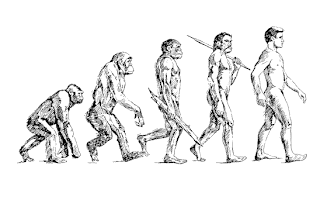In Afghanistan, what must be a complete moron reportedly strangled his wife for giving birth to a third girl instead of a boy. The moron’s mother helped him. The husband fled when police came. The mother was arrested. Her explanation: the wife committed suicide over guilt.
The husband and mother should do the same over stupidity. Women do not determine the gender of a baby. Men do. The wife had three daughters because of her husband.

Why didn’t the husband know that? Because his version of his religion teaches that women are responsible.
While the tragedy is limited to one person in this case, this is hardly the first time religion has generated dreadful consequences. Anyone who has studied history knows about the various religious wars during the centuries, the people burned at the stake because they dared to believe something different than the ordained faith and so on. The battles continue today, such as between Sunni and Shiite sects in Iraq.
People just don’t know about their religion and accept blindly whatever they are told, regardless of the consequences.
I see it regularly on a much smaller basis in my religious history classes. I’ve been studying religious history since I was a kid and teaching the subject for some 30 years. I am appalled regularly by the abject ignorance by my students in what should be a very important subject.
They profess a belief. They read the holy books. They talk about their faith. And they know nothing about it.
I had one student who walked out of class because I didn’t say the Bible was written by God. It may have been divinely inspired, but there’s no question man put stylus to parchment. The many missing words, strange phrases, puns (in Hebrew), and the multiple conflicting ideas and faulty attempts at history clearly indicate that.
Another man left angrily because I said Christianity was about 2,000 years old. He said Christ lived for all time. I told him that may be true, but he only manifest himself two millennia ago. That didn’t appease him.

The reality is that all of our religions today grew out of existing faiths and were affected by the events of their time. For example: Hinduism is the last of the ancient pagan faiths with the multiple gods that once populated everyone’s household. Judaism is the last of the ancient Middle Eastern faiths whose gods interfered in daily life. Christianity is an amalgam of Judaism and Greek paganism. Mormonism is a combination of Christianity and ideas circulating through upstate New York at the time. Some religions – Buddhism and Zoroastrianism come to mind – only endured because some would-be military leader needed a new religious banner to fight under.
Religions influenced each other. Buddha wanted to purify Hinduism. His followers generated a new religion. Jesus wanted to rid Judaism of what he considered onerous elements. His followers instead created a vastly different belief. Muhammad wanted to bring monotheism to his pagan countrymen. He saw himself as the new Paul. His followers saw him as the last prophet from God.
That’s how the system works.
We know that because records still exist, particularly for more recent faiths like Christian Science, Latter Day Saints and Scientology. However, there are plenty of documents that help historians piece together the origins of religions like Christianity, Islam and Zoroastrianism. For older faiths, like Judaism and Hinduism, historians can only speculate and rely on archaeology.
None of that means the faiths in any of the religions are misplaced. No one can “prove” any belief is wrong, no matter how absurd it sounds to someone else. I don’t believe my late uncle has been reborn as a cow, but I can’t prove he isn’t. All historians can do is show how such a faith developed.

That’s’ enough to demonstrate that all religions have been created by man in a desperate effort to understand what is not understandable. They are avenues to reach the divine. There is no one avenue. There is no one truth. The existence of so many flourishing faiths is evidence of that.
If believers would start accepting the facts and stop insisting they alone own the secrets, then morons in any country will stop trying to impose religious tenets as facts. Maybe we’ll have fewer inane murders and more peace.
We don’t have to follow John Lennon’s advice in “Imagine:”
“Imagine there's no heaven
It's easy if you try
No hell below us
Above us only sky
Imagine all the people living for today
Imagine there's no countries
It isn't hard to do
Nothing to kill or die for
And no religion too
Imagine all the people living life in peace….”
It's easy if you try
No hell below us
Above us only sky
Imagine all the people living for today
Imagine there's no countries
It isn't hard to do
Nothing to kill or die for
And no religion too
Imagine all the people living life in peace….”
Bill Lazarus regularly writes about religion and religious history. He also speaks at various religious organizations throughout Florida. You can reach him at www.williamplazarus.com. His books are available on Amazon.com, Kindle, bookstores and via various publishers.








